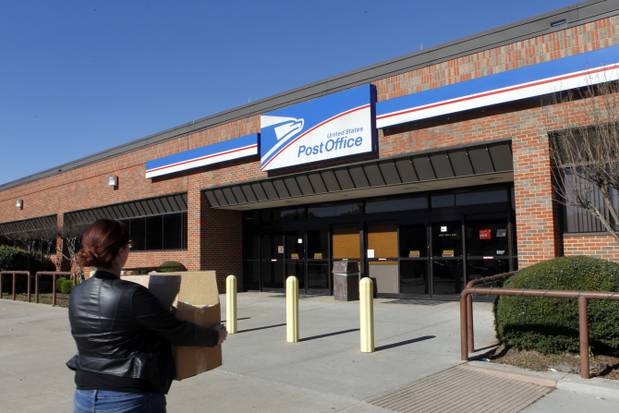The Postal Service recently reported a $2 billion loss in the third quarter of fiscal 2014. While this loss has provided evidence for people who advocate downsizing USPS further, there are other numbers outside of the media spotlight that show a more complicated matter.
The design that USPS is directly reporting to Congress is the root reason for its grievous financial condition and its inability to get its books out of the red. Although technological advancements have reduced the traditional mail volume over the years, the Postal Service was in very healthy financial shape back in 2006 and therefore attributing the decline fully to the internet may not convince all. In 2006, Congress and the White House passed a law that forced the USPS to prefund retiree health benefits for all its employees in the next 75 years by 2017. As the only federal agency burdened with such an obligation, USPS has started its decline since then.
In the third quarter of fiscal 2014 the Postal Service made $10 million in operating profit, and the loss of $2 billion only appeared after fulfilling its prefund obligation as required by the 2006 law. The loss was $750 million for the same period of last year. Since the beginning of fiscal 2014, USPS has made more than $1 billion in profit but ended up with a net loss of $3.7 billion.
USPS’ efforts to diversify services have been greatly limited by Congress, which has insisted that the service not compete directly with private companies. In 2000, USPS began operating a secure system that would have allowed it to remain the primary conduit for most American’s monthly payments. But the Internet industry objected, and Congress successfully pressured the USPS to abandon it.
The same pattern has repeated several times over the last decade, with the Postal Service identifying a way to cope with the decline of traditional mail, only to have companies–and ultimately Congress–object. Even as companies like FedEx and UPS have encroached on the Postal Service’s turf, Congress still placed limitations on its direct competition.
As a result, USPS has failed to expand its service to banking, insurance, retailing, etc. which are routinely offered in a post office in Europe or Asia. Rounds of bills aiming at saving the Postal Service have been debated and voted. Many mail processing centers and post offices were closed. But cutting service alone, without increasing revenue, will not solve the financial troubles. And revenue increase is not possible when Congress refuses to grant USPS the freedom and flexibility.
In the latest report from the Postal Service’s Office of Inspector General proposed that the USPS offer expanded financial services–including bill payments, prepaid cards, and small-dollar loans. Financial service is not new to USPS. From 1911 to 1967 it offered savings accounts; today it provides more domestic paper money orders than any other sources.
The proposed service of small-dollar loans has the potential to save millions or billions of dollars for under banked Americans. One quarter of Americans are unbanked or under banked. Under banked people have regular banking accounts but also use payday lenders for brief and low amount loans.
It is expensive to use the payday loan service. The average under banked Americans earn about 25,000 per year, but pays 9.5 percent of that in interests and fees for this service. It is not unusual for payday loans to have an annual interest rate over 800 percent.
On August 10th, Last Week Tonight with John Oliver on HBO exposed the profitability of the payday lending industry and the difficulties to regulate it for consumer protection. Aside from the high interests for people who cannot pay back the loan soon, high hidden fees sometimes can plague people who can.
Aware of these issues, many states attempt to regulate the interest rates and fees the industry can charge. Even in states that overcame the pressure from the industry to have strict rules, such as Kansas, the industry avoided the rules by changing names, changing business registration categories, etc.
Consumers are not blind to the pitfalls of payday loan but they still need the financial relief this service can offer. If Congress allows USPS to offer similar service that charges a reasonable fee, consumers in need could rejoice.
In the world, the traditional mail delivery declined 20 percent over the last decade, but postal financial service increased 28 percent over the same period. Three out of four postal operators worldwide offer financial service and one billion people in 50 countries use them.
USPS still has the second most civilian employees in US (after Walmart) and its number of offices rivals that of Walmart, McDonald’s and Starbucks combined. With such giant infrastructure presences, limiting it to the mail delivery service is unconvincingly wasteful.
Opinion by Tina Zhang
Sources:
Federal Times
The Economist
The Pew Charitable Trusts
The New York Times
